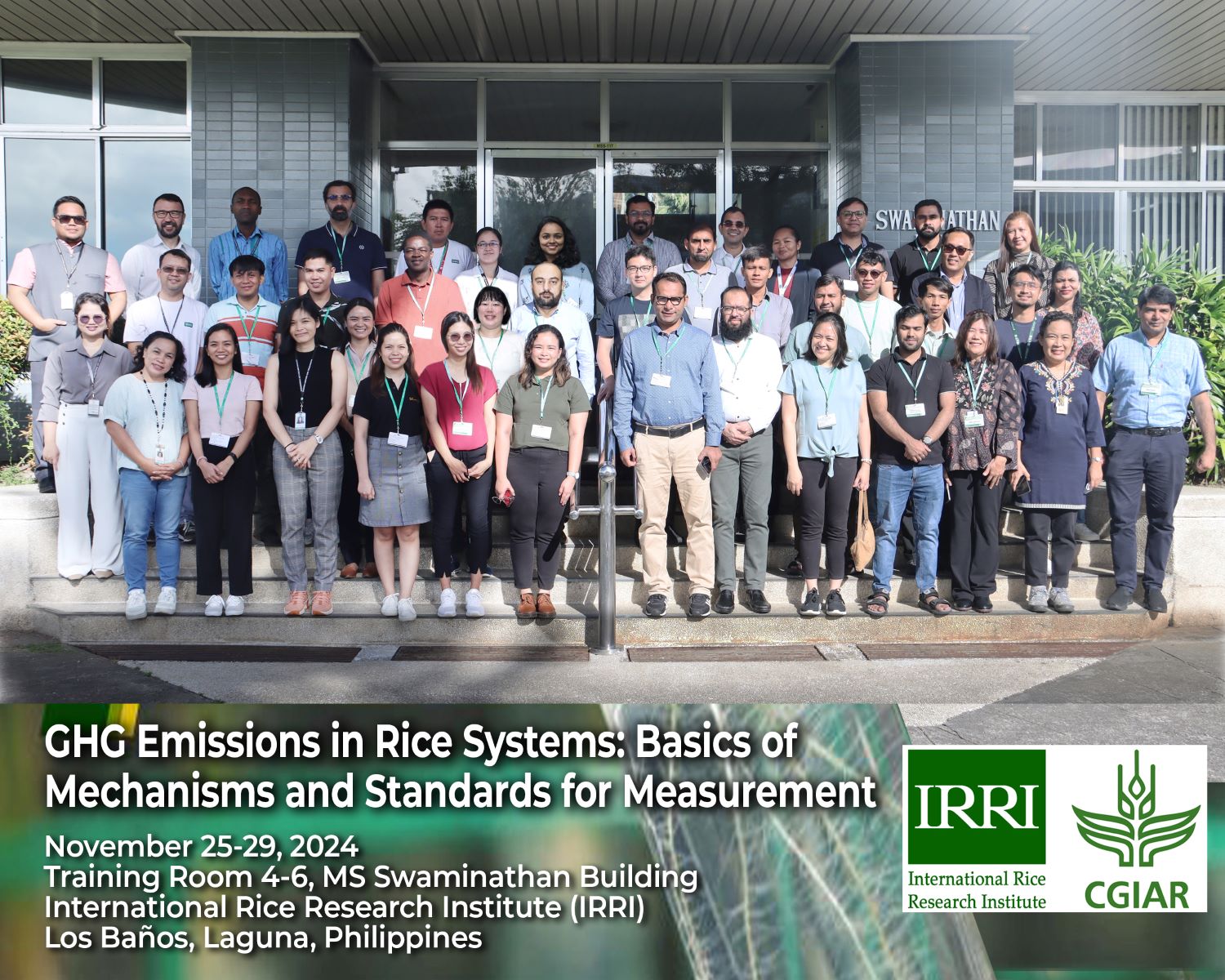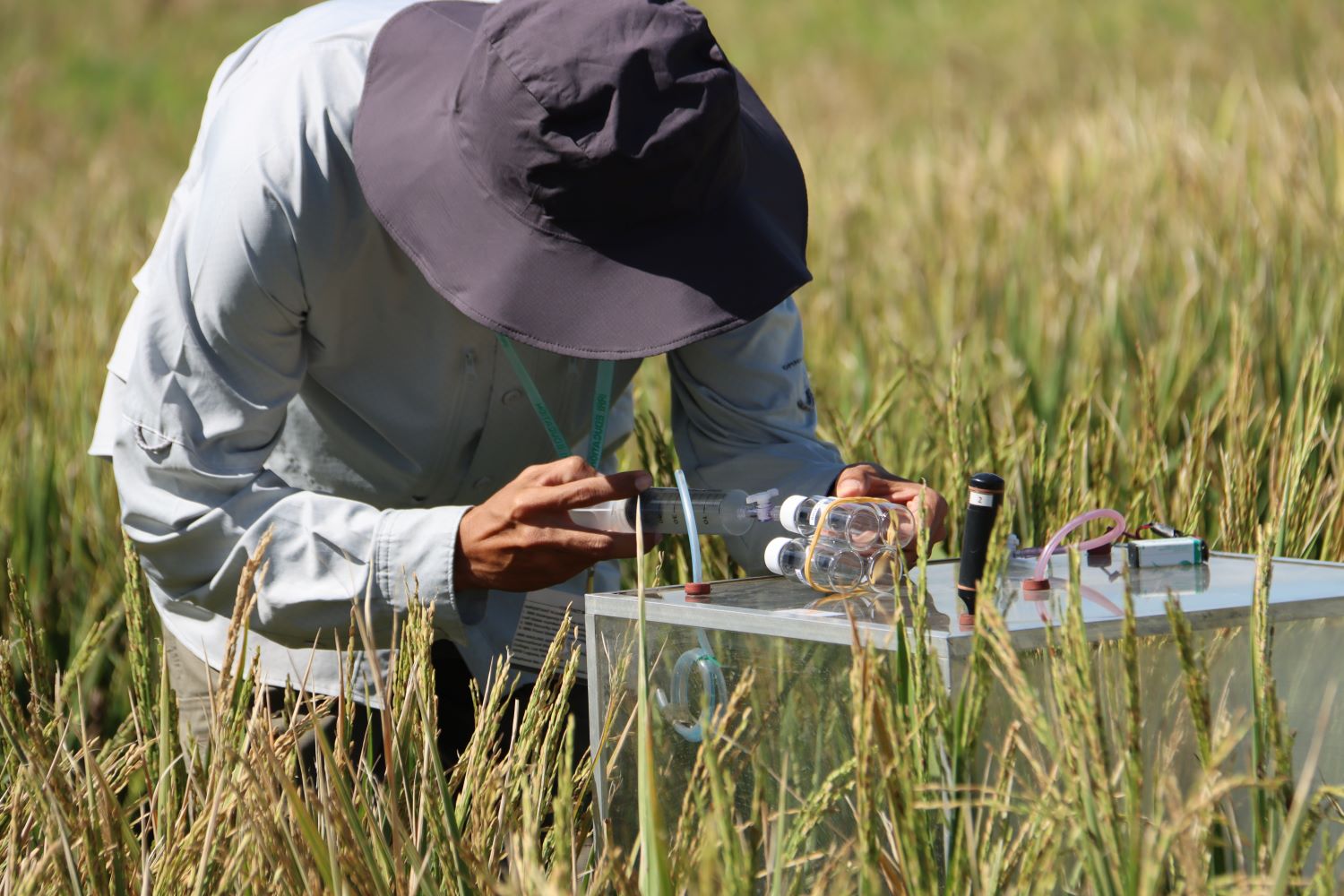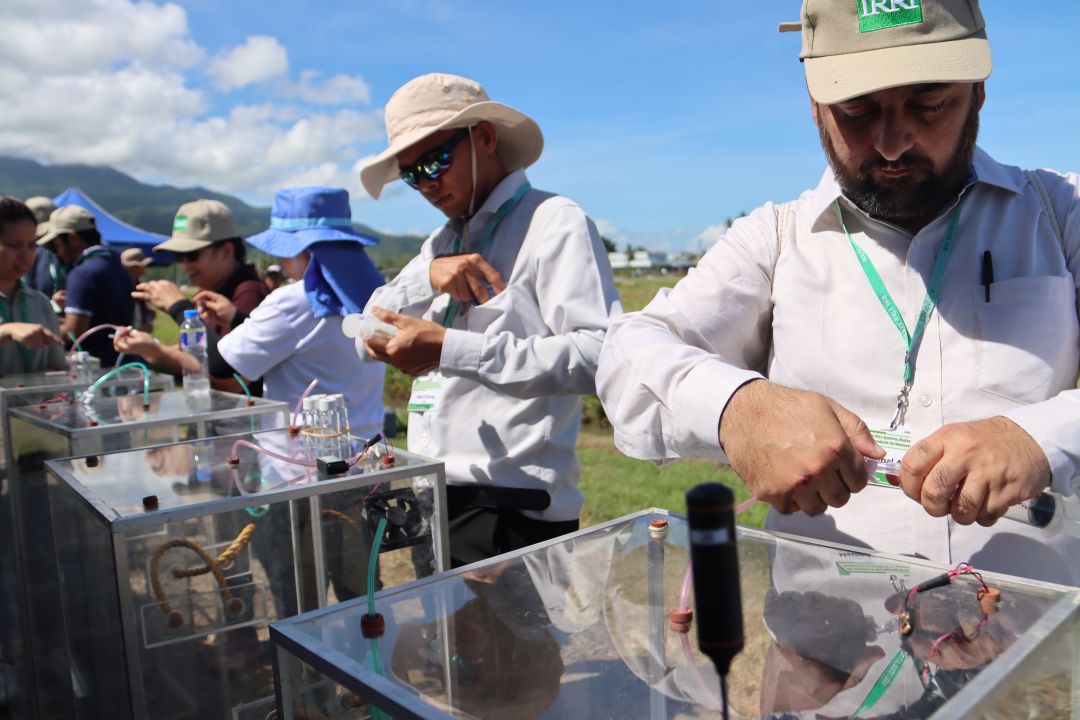Los Baños, Laguna, Philippines — November 29, 2024 Rice production is a significant source of a greenhouse gas (GHG) called methane (CH4), accounting for up to 20% of national GHG inventories. Given the urgent need for climate action, mitigating GHG emissions from rice farming has become a critical global policy objective. Accurate measurement of emissions is essential for developing effective mitigation strategies, tracking progress, and ensuring that global climate targets are met.
Hosted at IRRI’s headquarters in Los Baños, IRRI Education conducted a “GHG Emissions in Rice Systems: Basics of Mechanisms and Standards for Measurement” course last November 29, 2024, which brought together 30 participants from India, Japan, Pakistan, Bangladesh, Cambodia, Benin, and the Philippines. The course aimed to enhance expertise in measuring greenhouse gas emissions from rice-based systems and explore effective mitigation strategies.





